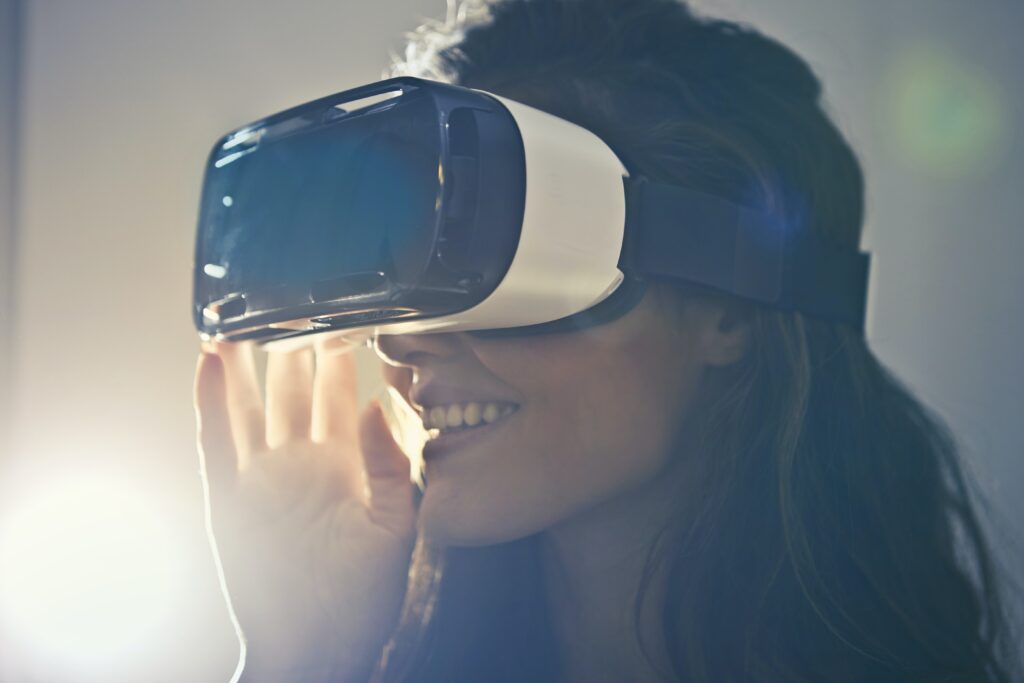Behavioral health-focused virtual reality companies BehaVR and OxfordVR have merged, the pair announced Tuesday. The joint company will operate under the BehaVR name.
The deal was supported by a $13 million Series B funding round led by Optum Ventures and Oxford Science Enterprises. Accenture Ventures, Confluent Health, Chrysalis Ventures and Thornton Capital also participated.
Both BehaVR and OxfordVR describe themselves as digital therapeutics, which are evidence-based treatments delivered through software interventions to treat or manage a condition. The pair have a long history of using VR to give patients a “multi-sensory” experience to help treat mental health conditions.
Elizabethtown, Kentucky-based BehaVR was founded in 2016. Prior to the merger, BehaVR had raised $8.2 million over three funding rounds, according to Crunchbase. It offers VR programs aimed at treating anxiety regulation, maternal health, pain management and addiction recovery.
Meanwhile, OxfordVR was founded in 2016 in Oxford, England. It has also garnered investor attention. Before the merger, the startup had raised $17.2 million in venture capital funding, according to Crunchbase.
In June, the company landed an FDA breakthrough designation for its VR therapy named gameChange, which is aimed at treating patients with schizophrenia spectrum disorders through virtual cognitive behavioral therapy (CBT).
“We have lots of momentum heading into next year,” Aaron Gani, BehaVR’s founder and CEO, wrote in an email to Behavioral Health Business. “BehaVR was already pursuing FDA clearance for two products addressing social anxiety and opioid use, and now we add OxfordVR’s product for addressing negative symptoms of schizophrenia.”
Following the merger Gani will continue to lead the joint company.
“This latest funding will help us advance our pipeline as well as our other key priorities, including platform and interoperability work,” he continued. “Ultimately, we will build and commercialize a suite of solutions across the acuity spectrum, which can be deployed via healthcare enterprises as individual products or as a suite of solutions to address a broader patient population.”
More and more behavioral health providers and innovators are turning to the VR space for new therapies.
At the beginning of the year, AppliedVR landed an FDA De Novo clearance for its EaseVRx system, which was designed to treat chronic lower back pain through cognitive behavioral health therapy and other mindfulness techniques, according to MobiHealthNews.
While the clearance focused on a physical health condition, the company is looking to expand into anxiety and depression as well.
“The DTx industry’s expanding depth and breadth has meant increasing options to improve clinical outcomes using technologies that patients already have access to and are already familiar with,” a spokesperson from the Digital Therapeutics Alliance, told Behavioral Health Business. “This is especially true in the virtual reality space, where these immersive therapeutics – a subset of digital therapeutics – are demonstrating meaningful results and offering patients a high-quality, evidence-based treatment to address their mental health concerns as well as other areas of extraordinary need.”
XRHealth, which closed a $10 million funding round earlier this year, uses VR to treat a number of conditions including anxiety and depression, ADHD and speech-language issues.
Digital therapeutics company Pear Therapeutics, which is best known for its addiction treatment digital therapeutics, has also shown an active interest in VR. In 2020, the company acquired two pain relief therapies from health care VR company Firsthand Technology.
“There’s growing evidence, researched over the last 20 years and now with building momentum, that virtual reality-based digital therapeutics can play an important role complementing pharmacological and traditional therapeutic treatments at scale,” Gani said. “VR is uniquely immersive because it gives us the ability to create and control multi-sensory experiences that the brain processes as real. This allows for uniquely powerful interventions tailored to address many mental and behavioral health needs, things like anxiety, depression, chronic pain, PTSD and substance abuse disorder.”



